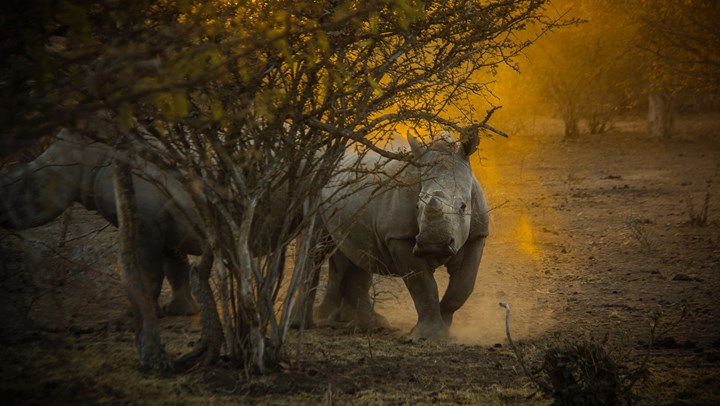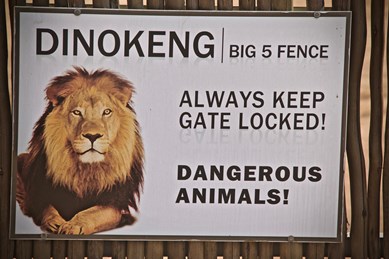
by Phil Phillips - Tuesday, November 1, 2016

You don't have to hunt Africa—or even be a hunter—to know of Africa's poaching crisis. In 2016, no hunting and conservation issue is on the international radar more as news reports cite the latest poaching or wildlife trafficking incident involving prized rhino horns or elephants tusks. Armed with the latest technology and military-style weaponry, these criminals track and slaughter animals undetected. The brutal, bloody images of the poached animals are horrifying. Now imagine stumbling onto the aftermath firsthand. The issue is forever personal.
Last summer, my wife, Karen, and I were at the Dinokeng Game Reserve outside Pretoria, South Africa, when a nearby rhino was poached. Ironically, we’d partnered with Theron African Safaris to set up a hunting operation at the reserve specifically to help it raise revenue for an anti-poaching unit. As the first and maybe only free-ranging African Big Five residential game reserve next to an urban area, Dinokeng was struggling to protect its rhinos. We met and rode with the game scouts and learned about their challenges as they monitored rhino movements 24/7. They were careful to keep rhino locations a secret so word did not get out to poachers. For Dinokeng residents and visitors, spotting the iconic rhino was the luck of the draw.
They were careful to keep rhino locations a secret so word did not get out to poachers. For Dinokeng residents and visitors, spotting the iconic rhino was the luck of the draw.
Two days later, the scouts said they were on high alert. It was the night of the full moon. When Karen asked why that caused particular concern, they explained it meant the poachers would have no need for spotlights that could otherwise give them away because they could operate by the light of the moon. That night a rhino was poached on the private reserve adjacent to Dinokeng.
Unfortunately, the stories about rhino poaching in South Africa keep coming. On Oct. 29, the Washington Post article, "In South Africa a Private Army is Fighting Rhino Poachers," notes there were nearly 500,000 rhinos in the early 1900s. Today there are fewer than 30,000 across Asia and Africa. Because most are concentrated in South Africa, standing guard over them there is a big business. It's so big, in fact, that the article explains how game-reserve operator Simon Rood quit the hunting business to launch a wildlife security company, Nkwe Wildlife and Security Services, to target poachers. Land he once used to guide hunters is now training ground for anti-poaching guards who he then sends to patrol private game reserves.
As covered by NRAHLF.org, poaching is the greatest threat to hunting in Africa, wiping out mass numbers of wildlife. [Click here to check out the HLF fact sheet "Poaching is NOT Hunting."] When it comes to the black market, managed and funded by organized crime syndicates, elephant and rhinoceros top the list. Unfortunately, as also noted by NRAHLF.org in the article, "Trophy Hunting Decreases Illegal Trade in Bushmeat," poaching for "bush meat" is a separate problem. From Kenya to Zambia, hungry Africans are setting tens of thousands of wire snares in areas known for abundant wildlife to poach food for their families and flood the market with a relatively inexpensive meat source.
E-mail your comments/questions about this site to:
[email protected]
